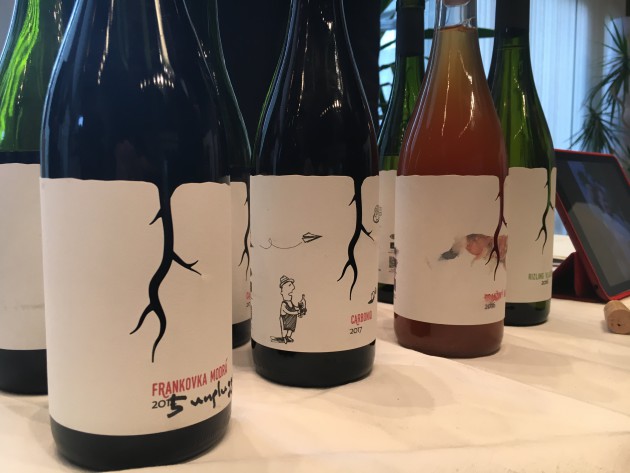
Transformed Slovakia targets UK
UK wine importers have sealed new distribution deals to import their first cool climate wines from Slovakia, in moves that highlight the transformation of viticulture in the eastern EU country.
Basket Press Wines in London, is to distribute Magula Wine Estate organic wines made with low-intervention practices near Tnava, east of the Little Carpathians mountain range.
Basket Press Wines, which launched its Czech wine distribution business in Britain last year, presented its first Slovakian wines this week at the RAW wine fair and at a tasting held by the UK branch of the Association of Sommeliers of the Slovak Republic at the Embassy of Slovakia.
Meanwhile, Occasional Connoisseur, another new UK wine distributor, based in Sussex, has taken on five fruit driven wines of producer Karpatska Perla located in Senkvice, in south west Slovakia, near Bratislava.
“We are expanding our portfolio of Eastern European wines with our first Slovakian wines,” said Gren Turner, MD at Occasional Connoisseur.
“We were impressed with the quality of the wines and we are plugging a gap in the market by taking on wines, which are not in the UK. These are wines made from small producers which are not of interest to big distributors who want high volumes,” Turner said.
The move from UK distributors to take on Slovakian wines highlights the transformation of viticulture in the country with producers increasingly focusing on quality production.
Lubomir Rehak, Slovakia’s UK ambassador told Harpers that Slovakian producers were focusing on targeting on-trade distribution in restaurants, bars and independent wine merchants.
According to the UK branch of Slovakia’s Association of Sommeliers, run by sommelier Dominik Baranek at the Savoy Hotel, about 100 new vineyards, grown by largely by a new generation of small producers, have sprung up across Slovakia since 2000.
This new wave of winemakers is helping shrug off the country's reputation for poor viticulture which until recently had lingered on from the days of the state-run wine industry prior to the Velvet Revolution of 1989, and is now helping to curtail a major fall in national wine production over the past two decades to around 10,000ha.
“There is has been a small explosion of new vineyards with producers make improved choices on rootstocks and making more terroir-driven wines,” said Matej Lacko, a sommelier who works at the International Wine Challenge.
While the most important vine growing areas are in the Male Karpaty Hills near the Little Carpathian mountains, Gabriel Kollar, head sommelier at Gordon Ramsay Restaurants, said that 20 new producers had emerged in the past five years in southern Slovakia near Strekov.
“Producers are benefitting from earlier ripening in the south in temperatures tempered by Slovakia’s wide diurnal range which ensures good acidity in the wines,” Kollar said.
The average temperature in Slovakia, a landlocked country with a continental climate, can vary by as much as 20 degrees celsius.
The Slovakia tasting this week at the Slovakian Embassy in London, showcased a broad range of production styles, including wines made from several new crosses (designed to reach high sugar levels rapidly) and vibrant, un-oaked, crisp low-alcohol wines showing purity of fruit, but also full-bodied oaked whites aged on the lees (Riesling, Welschriesling, Gruner Veltliner, Pinot Blanc and Pinot Gris) and Blaufrankisch and Cabernet Sauvignon rosé wines.




